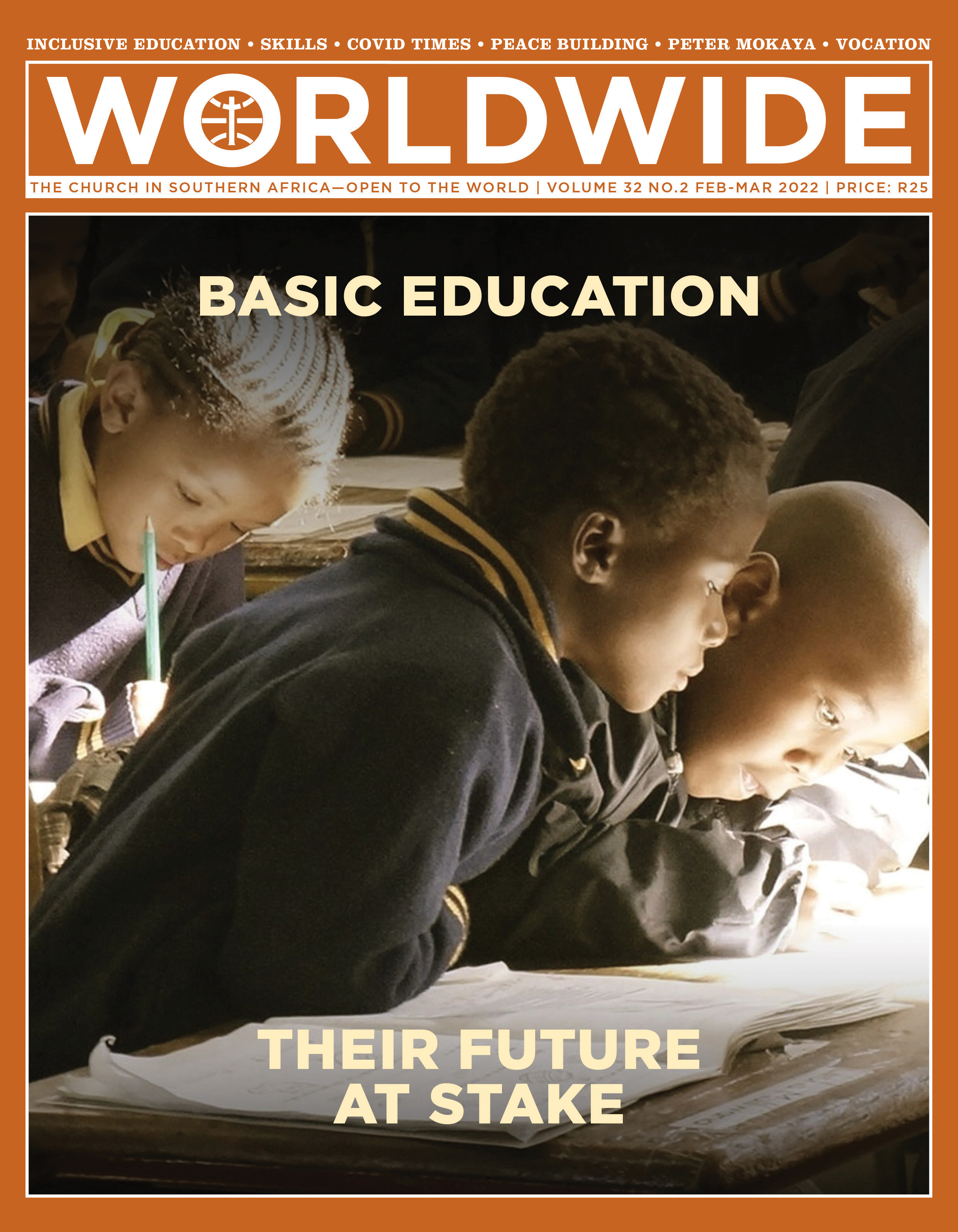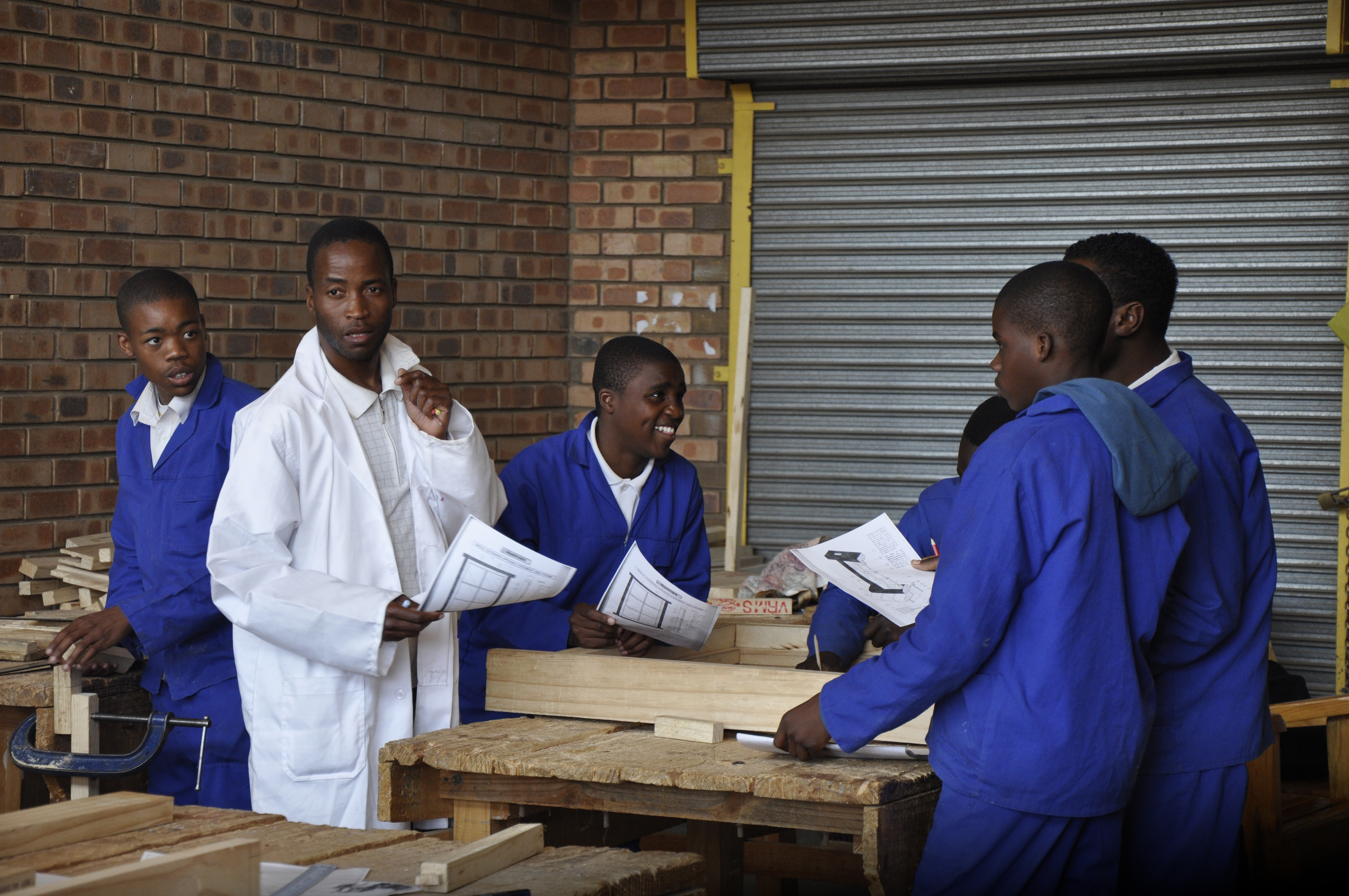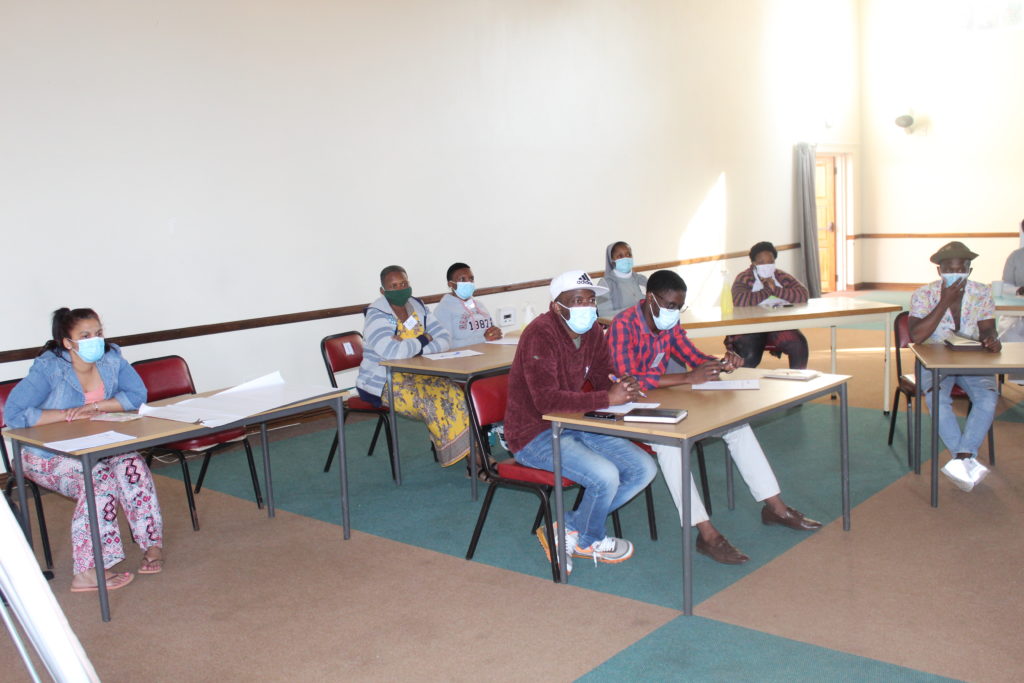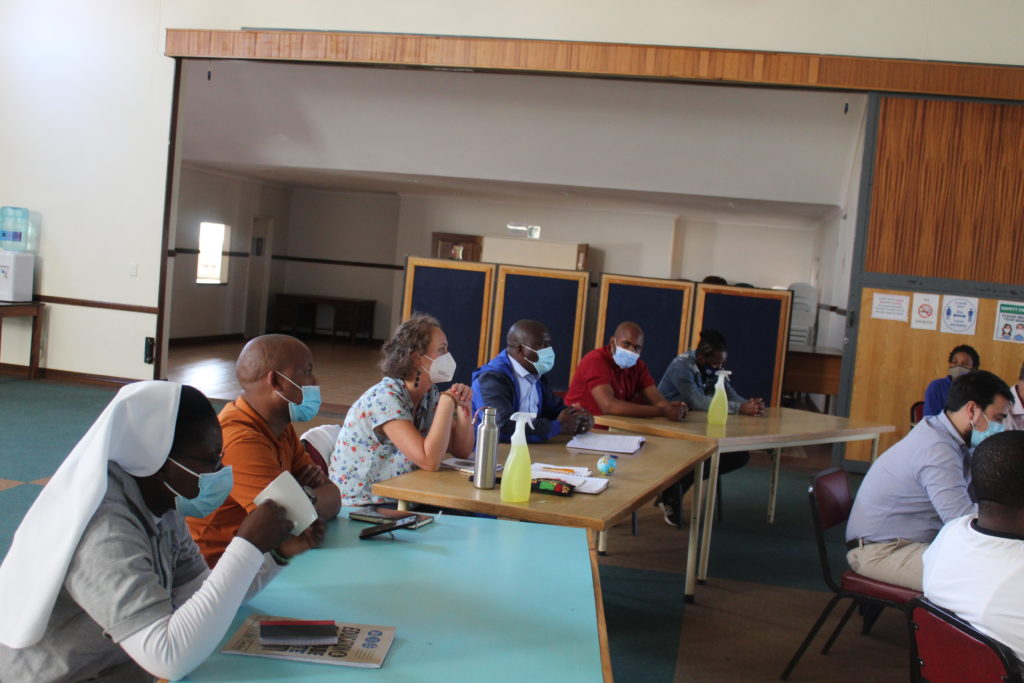
Basic Education Their Future At Stake
The front cover picture was certainly not taken during Covid times. We do not know its exact location, but it could be from any particular school in rural South Africa. What indeed the image of these children reflects is their eagerness for learning and doing it together. Their minds are surely full of dreams; their desires for a bright future cannot be frustrated. The task of offering them an inclusive and integral quality education can look gigantic, but each one’s contribution can make the miracle happen.
WORLD REPORT • SKILLS TRAINING IN THE 21ST CENTURY

The Potential of the Informal Economy
Informal businesses have shown greater flexibility than the formal sector in adapting to the challenges of the current formal recession in South Africa. A Catholic school shows how it is possible to bridge the gap between training and economic activity
BY Anne Baker | Deputy Director of the Catholic Institute of Education (CIE), Johannesburg
WHILE THE Covid pandemic has delayed the predictions of the World Economic Forums on the fourth industrial revolution, a quiet, but effective, economic transformation has been occurring in the digitisation of informal economies to the benefit of people in skills training centres. Unsurprisingly, established formal businesses take time to adapt to new methods and technologies, whereas informal businesses have the flexibility to be early adaptors. The impact of the pandemic on the economy of South Africa has been dire, with over 900 000 formal jobs lost in the past three years. Even if data is not available on whether these formal job losses have been replaced with others in the informal sector, the official unemployment rate indicates that overall, the job creation in the informal sector has not kept pace with the losses in the formal one.
Unemployment
According to the 2020 World Development Indicators from the World Bank, South Africa had the highest unemployment rate in the world with 28.74%. Moreover, according to Statistics South Africa, it reached 34.9%, in the third quarter of 2021 and among young people (aged 15–34 years) the rate was 46.3% in the first quarter of 2021.The skills gap theory has dominated the approach to the economy through various government policies from Growth, Employment and Redistribution (GEAR), Accelerated and Shared Growth Initiative for South Africa (ASGISA) to the new growth path. The primary view has been that the South African economy holds great potential for skilled labour and the primary problem has been the oversupply of unskilled labour, inherited from the apartheid economic model. The combined under-supply of critical skills and over-supply of unskilled labour create a huge employment vacuum which contributes to poverty and unemployment. Government policy included terms like the National Skills Revolution, and the overhaul of the skills fund was designed to undo the skills deficit. Similarly, per capita, South Africa is one of the leading spenders on education, despite poor outcomes in schools; the State has prioritised education spending since the dawn of democracy.
South Africa has, however, been in formal recession between the fourth quarter of 2008 and second quarter of 2009 and various technical recessions in between before going into a formal recession during the pandemic. Therefore, the view that the formal economy lost its potential solely through the lack of requisite skill, no longer holds true. The principle that one simply had to provide training and the job market would absorb newly skilled individuals, has been replaced with the reality that the formal economy is not providing enough jobs for skilled and unskilled workers.

Credit: Catholic Institute of Education
Skills centres
The Thabiso Skills Institute started as a project 25 years ago and later became a department of the Catholic Institute of Education (CIE) for the last 10 years.
The Institute serves skills centres that are situated in and around communities that are socio-economically deprived i.e. communities displaced during apartheid. In 2019, collectively the 22 centres within the network reached 6 387 learners, 60.2% were male, 4% were 17 years of age or younger, 58% were 18–24 years and 36% were 25–64 years old. Only 38% held a matric (the Grade 12 school leaving qualification). Learners accessing the centres within the network are 98% unemployed and 1% under-employed, with all from low or no-income (government grant) households. In the tradition of the Catholic Church, all programmes are universal, that is, they are offered to the whole community irrespective of race, gender, religion, orientation or age. Many are third generation unemployed and have limited exposure to positive adult role models and attended dysfunctional schools that provided almost no personal or career guidance. Learners experience social decay manifested in the form of violent killings and protests, abuse of women and children, neglect, high levels of rape, crime and violence, trauma, unhealthy lifestyle choices (i.e. addiction) and are all affected by HIV/AIDS. Most of the centres are run by people sourced from within the served communities and thus they deal with the same challenges that their learners and communities experience.
The addition of this component ensured that learners could have practical experience. Out of the 810 learners enrolled in the programme, 35.4% became economically active compared to a mere 8% who were not in the programme. It is worth noting that this does not mean 92% of learners never become economically active, but rather that the programme reduced the time between graduating and economic activity. More strikingly though, 57.6% of the learners who attended alternative workplace-based learning became economically active compared to the 4% of learners who attend formal workplace-based learning. We are beginning to see trends that the quiet revolution happening in the informal economy is seemingly more effective for economic activity. The question remains why?

New technologies
The recent launching of digital only banks, who have a lower socio-economic target market, a suite of new financial technology (fintech) companies and the growth in the IT sector, have benefited both the formal and informal economy and present not just hope but real opportunities for those engaged in skills training. Where previously formal structures were governed by regulation which limited the options for the poor, the online space has made access more viable to those with internet access. South Africa is a highly digitally connected country with 38.13 million active internet users. Despite the lack of direct access necessarily to fibre internet and high costs, the use of mobile phones as access points to the internet with 36.14 million users provides an expanded reach.
Private entrepreneurship
The use of internet platforms such as second-hand sites and even international platforms such as Facebook and Instagram, present unregistered businesses and individuals’ platforms to trade goods and services. Uber, Bolt and Didi have changed the way in which people move but at the centre of these global companies, are individuals who are private contractors. The same applies to Airbnb which can be found across various suburbs and economic levels. It can be said now that the world’s largest taxi company owns no cars and the world’s largest accommodation chain owns no property and this is all possible through the existence of a range of private providers who can be formal and informal.
The Thabiso Skills Institute has kept, and even been ahead of, the pace with regards to skills development in South Africa. We embrace skills and employment of the 21st century in this time of economic recovery and look optimistically to the future potential currently being seen in the informal economy.
| Dates To Remember |
|
February 1 – Blessed Benedict Daswa 2 – World Day of Prayer for Consecrated Life 4 – International Day of Human Fraternity 6 – International Day of Zero Tolerance of Female Genital Mutilation 8 – International Day of Prayer and Awareness against Human Trafficking 11 – International Day of Women and Girls in Science 11 – World Day of the Sick 13 – World Radio Day 20 – World Day of Social Justice 21 – International Mother Language Day March 1 – Zero Discrimination Day 2 – Ash Wednesday 3 – World Wildlife Day 8 – International Women’s Day 15 – St Daniel Comboni’s Birthday 20 – International Day of Happiness 21 – International Day for the Elimination of Racial Discrimination 21 – SA Human Rights Day 22 – World Water Day 24 – World Tuberculosis Day 24 – International Day for the Right to the Truth concerning Gross Human Rights Violations and for the Dignity of Victims 25 – International Day of Remembrance of the Victims of Slavery and the Transatlantic Slave Trade |
